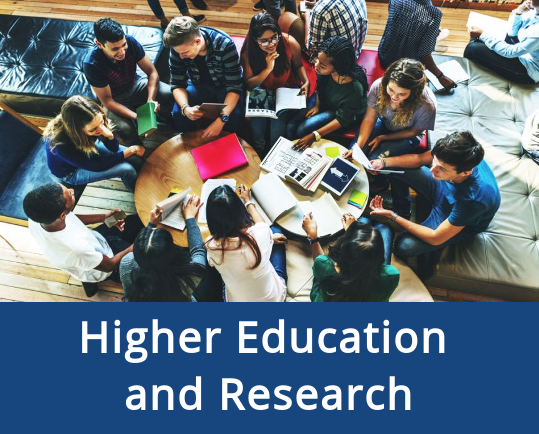Conference “Universities as Actors of Intercultural Dialogue in Wider Society”
2-3 June 2009. Moscow. Peoples’ Friendship University of Russia
While the Council of Europe has always been committed to intercultural dialogue, this topic has become an increasingly prominent part of the Council’s work over the past few years. This work culminated in 2008 with the adoption of the White Paper on Intercultural Dialogue, entitled “Living Together as Equals in Dignity”, which responds to an increasing demand to clarify how intercultural dialogue may help our societies to value diversity while sustaining social cohesion. It espouses a European identity based on shared fundamental values, respect for common heritage and cultural diversity as well as request for the equal dignity of every individual. Intercultural dialogue has an important role to play in this regard.
In this overall context higher education institutions have their place in fostering intercultural dialogue. There are at least two ways in which they can and should promote intercultural dialogue. The first one is direct and concerns the furthering of this dialogue on their premises, i.e. inside the institution. The seminar on ‘Intercultural Dialogue on the University Campus’ (Strasbourg, 4-5 March 2008) focused on this issue. The second concerns higher education’s role in promoting intercultural dialogue in the wider society, i.e. outside the boundaries of the institution. This is the topic of the present conference.
Universities are no longer the proverbial ‘ivory towers’, if indeed they have ever been, and now exist in complicated national and international contexts in a globalised world. This makes it imperative for them not only to look inside their institutions to manage effectively multicultural and diverse staff and student bodies, but to open up to other institutions and other countries. Universities not only need to act on campus; they are also important actors in the broader societies of which they are a part.
The conference will examine the issue of intercultural dialogue from different angles. We shall start by a presentation of the Council of Europe’s White paper on intercultural dialogue “Living together as Equals in Dignity”. We shall then look at the role of intercultural dialogue in the internationalization of higher education. Internationalization, which is also an important aspect of the reforms undertaken in Europe in the framework of the Bologna Process, is most often considered in terms of attractiveness and in improving the position of an institution or a higher education system in a competitive market. The role of intercultural interaction, communication and dialogue in this process is less often considered, and this will be the starting point for our conference. The issue will be considered from two angles: by a speaker from outside of Europe and by a European speaker from a country that has recently issued a White Paper on internationalization of education in which the need for intercultural dialogue is explicitly invoked.
At the level of higher education institutions we shall look at the roles which can be played both by university management and their staff. A student perspective should provide a refreshing look at the reality of intercultural dialogue and disclose any problems or outstanding issues, which should be tackled in this respect.
Universities in Europe reach out to one another and often form stable networks. We shall further explore how active such networks are in bringing forward intercultural dialogue to the national and international higher education landscapes. The panel on the second day will seek to wrap up the debate by questioning the best ways to promote intercultural dialogue. Should this be a ‘top-down’ or ‘bottom-up’ approach? Where do universities stand in this context? Should public authorities ‘impose’ intercultural dialogue? Is it realistic to have strong European policies on this subject and put intercultural dialogue firmly on the busy European higher educations agenda? Answering these and other questions should provoke deep reflection process and show the way forward.
Documents
- Draft Programme of the conference
- Synopses & biographical information
- Keynote speech by Gabriella Battaini-Dragoni
- B. Zh. Abdraimov (text)
- Fr René Chamussy, sj (text)
- Germain Dondelinger (Powerpoint)
- Lars Ekholm (Powerpoint)
- Lars Ekhlolm (text)
- Barasby S. Karamurzov (text)
- Alain Mouchoux (text)
- Olav Øye (text)
- Alf Rasmussen (text)
- Alf Rasmussen (Powerpoint)
- Marijke Wahlers (text)
Conference Report by Dr. Van’t Land
Conclusions & recommendations of the Conference
Conclusions & recommendations of the Conference in Russian and French
Reference documents
- The Council of Europe White paper on Intercultural Dialogue “Living Together as Equals in Dignity”, a key policy statement on the values of the Council of Europe adopted by the Committee of Ministers in May 2008;
- Final Report of the Conference: Universities as Actors of Intercultural Dialogue in Wider Society (Moscow, 2-3 June 2009).
- General report of the Seminar on “Intercultural Dialogue on the University Campus”, Strasbourg, 4-5 March 2008.
- Conclusions & recommendations of the invitational Forum on “Converging Competences: Diversity, Higher Education, and Sustainable Democracy”, coorganized with the US Steering Committee of the International Consortium for Higher Education, Civic Responsibility and Democracy, Strasbourg, 2-3 October 2008.
- Faro Declaration



